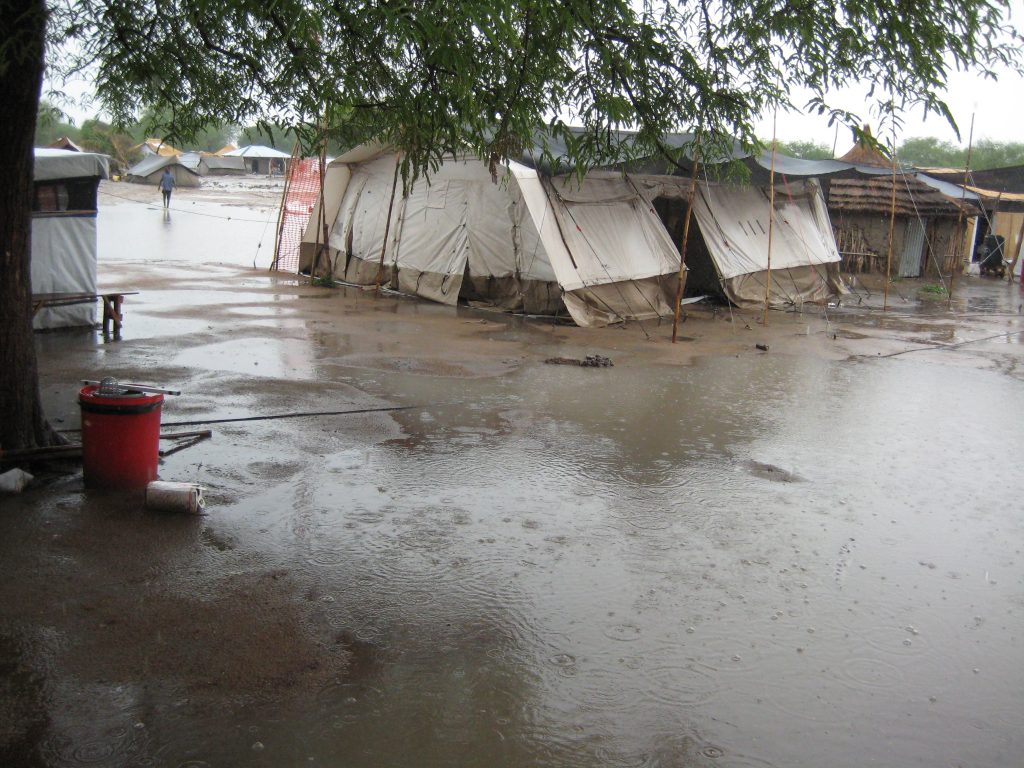Between the heat and hope in South Sudan

Guest post:
Health and nurses are also operations for emergency humanitarian assistance in crisis areas are needed. In her second guest post is reported by Raina Klüppelberg, health and a nurse in the Cardiac function in the service of the Asklepios Klinik Altona, by your use of “Doctors without borders” in South Sudan.
My first assignment with “Doctors without borders” was very exciting. In South Sudan erupted in December 2013, clashes between the army and armed rebels. Behind it is a conflict between the two South Sudanese ethnic groups, the Dinka and the Nuer. The fighting hit hundreds of thousands of people in the escape, more than 10,000 people were killed.
In the village of Minkamman, a small settlement with only a few Tukuls (mud huts) North of the capital Juba, beaches, approximately 100,000 refugees were at that time. “Doctors without borders” has been active and pushed a project from the ground up to provide the people with drinking water and sanitary facilities. A small Hospital was built to the medical care.
Injured and starved to death
The Hospital consisted of five tents for up to 70 patients. I was in February 2014, one of the first on-the-spot. My task was to train the South Sudanese hospital staff, and to take on the coordination for the staff and patients. A mammoth task, and I tried to cope with the help of two medical colleagues from Australia. The 27 national nurses, all of whom are men, had a little basic training. However, large knowledge passed gaps on issues such as malaria prophylaxis, Hygiene, and the measurement of vital signs. The threat of Hepatitis E and Cholera epidemics had to be prevented. And it was a great challenge, which violate many of the War to provide Malaria patients and malnourished children.
My main task is the training and coordination. I taught standards of care and service wrote plans. Due to the influx daily of new patients, I often helped itself, together with the national nurses to provide wounds.

Nothing could have had me on such a task prepare. Every day remained, only to face these challenges – and to eventually grow on them. The Plight and desperation of the people and their gratitude for our help have me driven and motivated.
Diarrhea and hot flushes
The great Team of “Doctors without borders” gave me. We were about 40 international aid workers working on various projects in the refugee camps. All of it was similar: There was a lack of privacy, and we slept in communal tents. The hygienic conditions were debilitating. There was no running water. In the shower we have with Nile water, the filtered out of a water bubble in a bucket filled and then the head was emptied. Our latrines were due to the heat of 50 degrees is hardly bearable. The stench that was. At least as bad as the flies were in swarms, continually in the feces at the bottom of the pit buzzing around them and everywhere were while doing his business. This includes the spiders, Scorpions and snakes, where the latrines were used as shadow cookies. To drink, we filtered the waters of the Nile. Beans from a can were my Highlight of each day. We suffered from constant diarrhea and hot flush. But we could suffer together, and then each other again.
After two busy months in South Sudan, my use was nearing the end. Despite the six pounds that I had lost, and despite the lack of sleep and rest, I felt so fulfilled like never before.
In the meantime, I’m back in Germany and help in a refugee camp in Hamburg. As my commitment to humanitarian causes at home looks like, I will tell in my next blog post.
In her first guest post Raina describes how she became a world-Trotter-nurse.
Photos: private
